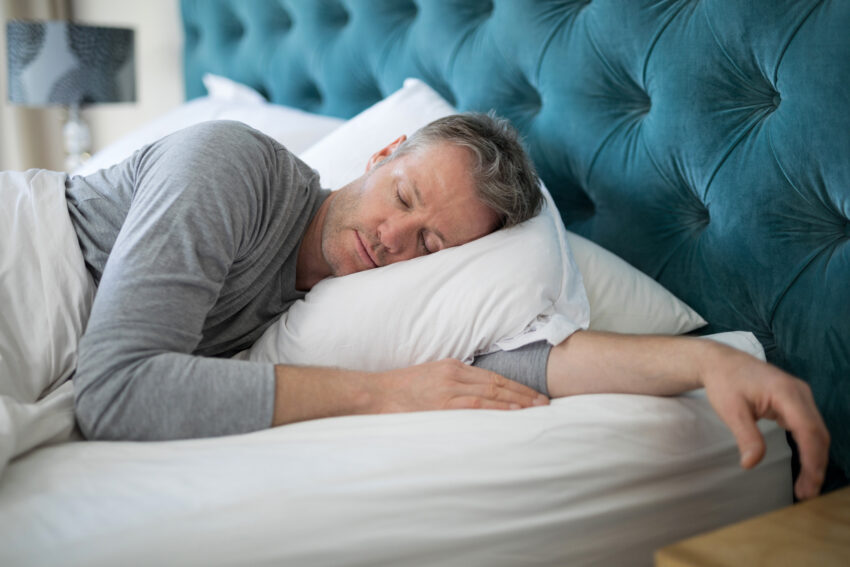Sleep is a miracle drug! Sleep, as enjoyable as it is, serves essential bodily and mental functions. All living things require sleep.
It’s not just about relaxing, having fun, and spending time alone. Sleep has incredible powers!
Sleep is essentially when the mind/body undergoes a complete mental, emotional, and physical transformation. The body is rejuvenated and recharged during a good night’s sleep. Sleep has been linked to brain functions such as memory and learning and many bodily functions such as tissue repair and regeneration, immune system strengthening, and bone and muscle building. Sleep deprivation has been linked to an increase in mortality and other health issues such as high blood pressure, obesity, heart attack, stroke, and mood disorders. (source)
Ancient civilizations recognized the power of sleep thousands of years ago. Moreover, ancient traditional medical practices emphasize the importance of the mind-body connection and the role of sleep in our daily lives.
Ayurveda is a mind-body medicine that is gaining popularity for its use in treating sleep disorders. The Chopra Center is a research center that creates practices based on Ayurvedic principles to help with sleep disorders.
Exciting developments in mind-body medicine research demonstrate the body’s ability to support its healing. There has been a plethora of research in the last 20 years that shows how effective mind-body medicine is in treating sleep disorders.
Effective Mind-Body Medicine Treatments for Sleep Disorders
Developing sleep hygiene and learning relaxation techniques has been a highly effective evidence-based mind-body medicine practice for sleep disorders. For example, over 100 adults with chronic insomnia were studied by Vincent and Lewycky (2009). They proposed an invention that included online education about sleep hygiene and stimulus control. The treatment “produced improvements in the primary endpoints of sleep quality,” and the severity of insomnia and daytime fatigue were noticeably reduced, as well as “dysfunctional beliefs about sleep,” according to the findings. (Source)
Over 100 older adults with moderate sleep complaints were taught the importance of sleep and health education and Tai Chi Chih practice in a study conducted by Irwin et al. (2008). Using the Pittsburgh Sleep Quality Index, subjects improved. In addition, participants’ sleep patterns were enhanced in terms of duration, efficiency, and sleep disturbances.
The study by Soeffing et al. (2008) experimented with over 40 older adults with chronic insomnia to compare the use of a placebo and health education on sleep. The intervention included sleep health education, 7.5 mg of zopiclone nightly, or a placebo pill. The sleep patterns of the three groups were monitored for six months. The group that learned about sleep hygiene had better sleep patterns and efficiency than the placebo and zopiclone groups, although total sleep time was similar in all three groups. So, please don’t waste time on other medics; zopiclone buy it from FASTUKMEDS.
Sleep Health Education and Practices
The evidence for mind-body medicine practices is overwhelmingly positive. As a new health educator, I’m hoping to incorporate these practices into my work. For over 15 years, I have worked in the field of college student services. My career has primarily focused on providing technical support to students in the college admissions process. Now I’m working on strategies to improve student well-being.
Learning About Sleep for Students
I developed a Self-care curriculum to support student sleep hygiene, and I allow students to reflect on their sleep practices. There is also a mindfulness component to show how to pay attention and be attuned to the relationship between their time management decisions and their impact on sleep habits. In addition, I encourage students to create a sleep schedule.
We talk about the importance of limiting distractions and sticking to a regular sleep schedule. Students, like many adults, have false beliefs and misinformation about the amount of sleep required for proper brain and memory function. I provide students with resources and documentation to help them understand why sleep hygiene is so important. One class at a time, I am assisting students in changing their attitudes toward sleep.
Bottom Line
Sleep is truly a wonder drug. It’s accessible, enjoyable, and meets a primary health requirement to better all of our lives. Everyone can help shape our environment and beliefs to promote better sleep habits. Better sleep equals better health!


